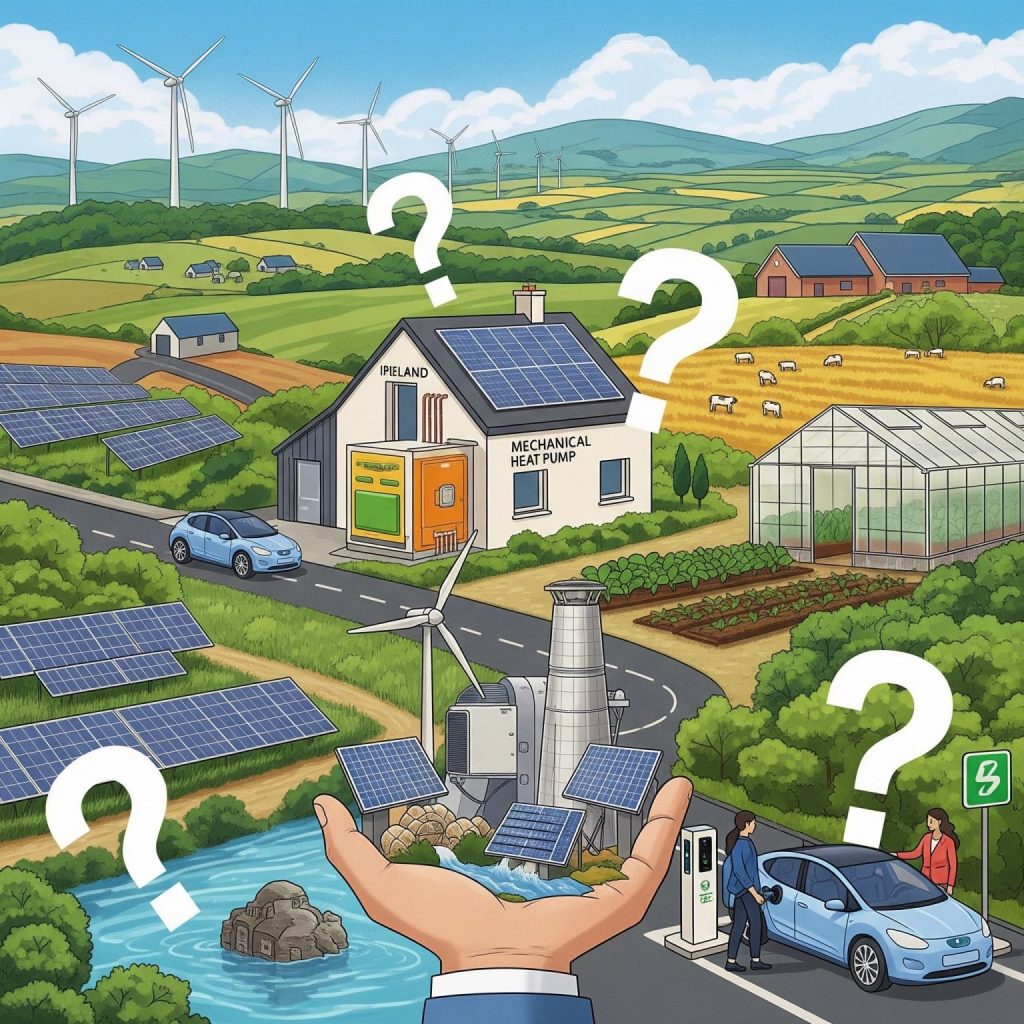
Ireland’s Climate Action Plan is a comprehensive document covering energy, business, housing, heating, transport, agriculture, waste, and the public sector. Its goal is to achieve carbon emission reduction targets by 2030 and net-zero carbon emissions by 2050. The plan includes over 180 actions and hundreds of sub-actions.
Examples of the Plan’s Goals:
- Transition to 70% renewable electricity by 2030 (currently around 30%).
- Put 950,000 electric vehicles on our roads and establish a nationwide charging network.
- Ban the sale of petrol/diesel cars from 2030.
- Reduce agricultural greenhouse gas emissions.
- Eliminate the use of non-recyclable plastic and introduce higher levies on difficult-to-recycle materials.
Questions and Concerns
I raise several important questions that aren’t always evident in such plans:
- Electricity Cost: Why are there no price forecasts beyond 2030? If the share of renewable energy increases, how will this impact the end consumer?
- Agriculture: Emission reduction might mean reducing livestock numbers. How will this affect the prices of meat, eggs, and also fruits and vegetables, if agricultural policy changes?
- Transport and Logistics: The ban on selling petrol/diesel cars will impact goods logistics. Who will service nearly a million new electric vehicles, and what should be done with depleted batteries that require disposal or recycling?
- Economic Consequences: How will such a large-scale transition affect the country’s economy as a whole? Could it lead to a lower standard of living compared to countries that continue to use traditional fossil fuels?
It’s worth mentioning the 2016 NASA study on the “greening” of Earth over 35 years due to increased CO2. I suspect the issue might not be as critical as portrayed, or that it’s part of a larger manipulation. My concerns about controlling energy prices, regulating movement, and potential restrictions on rights (e.g., through EV charging) are well-founded, given global trends.
Proposal: Diversification as a Solution
The solution I propose is diversification and autonomy. The idea of an autonomous home with solar panels, batteries, a “Mechanical Heat Pump” (for heating and hot water), biogas for cooking, greenhouses, and diverse transport options (petrol/diesel and electric vehicles) is a sensible approach.
Such diversification can indeed reduce dependence on centralized systems, mitigate manipulation risks, and protect personal rights in rapidly changing circumstances.
